- Home
- Shirlee McCoy
Sweet Surprises Page 4
Sweet Surprises Read online
Page 4
She closed the door, waved at him from behind the glass, and walked away, her slender hips swinging, her hair bouncing.
He was half-tempted to follow her.
Because it was a lot more fun to be around her than it was to be at Freedom Ranch.
He turned back to the truck, to the fudge he’d left on the seat, to the next thing on his agenda—returning to whatever new chaos he was going to find at the house.
And, there would be chaos.
There hadn’t been one day without it since he’d arrived.
River didn’t mind devoting his life to Belinda. She’d sure as hell have done it for him. She had done it for him. He didn’t mind the time spent away from his restaurants, his coworkers, his friends. What he minded was cleaning up shit that other people left all over the house, breaking up arguments between immature kids, putting out fires before they began.
He hoped to God everyone was asleep when he got home, but the way the past few weeks had gone, he was pretty damn sure that wasn’t going to be the case. Unless he missed his guess, Huckleberry would be in the kitchen rummaging for food. Angel was probably lying on the sofa, her seven-month-pregnant belly peeking out from under a threadbare T-shirt. Mack . . .
Yeah.
Mack.
No last name. Not that River had been given. Maybe forty, with burn scars on the side of his neck and a permanent frown. Mack didn’t sleep in the house. Near as River could tell, he slept in one of the outbuildings. He worked, though. He’d fixed the fence in the old cow pasture, planted a garden that had filled the fridge with produce, and seemed to be working on getting Dillard’s old tractor running.
River climbed into the truck and drove through town, then out onto the country road that meandered through farmland and wound its way through golden bluffs. Two miles in, and he turned onto what had once been a gravel drive. Now it was covered with grass and dirt, the sign that welcomed people to Freedom Ranch hanging listlessly from two wooden beams Dillard had planted in the ground himself.
He’d had a vision and he’d followed through on it. According to Dillard, there could never be any regret when a person did that.
He’d been the one who’d encouraged River to attend culinary school. He’d shelled out the money for River’s business degree, too, and when his first restaurant had opened, Dillard had cheered louder than anyone else.
Funny how much more present Dillard’s memory was on the ranch he’d loved.
River pulled up in front of the house he’d spent five years living in, all those memories washed away by the reality of what was. One of the guests—as Belinda insisted on calling them—had turned every downstairs light on. The living room curtains were open, and he could see Angel lying on the sofa, a can of pop on the end table nearby.
She seemed like a nice enough kid, but that’s what she was: a kid about to give birth to another kid. No mention of the father. No mention of her parents. Except that they’d kicked her to the curb when they’d found out she was pregnant.
She worked. River would give her that. She had a full-time waitressing job at Carla’s Diner and a part-time job cleaning houses for a few of the wealthier residents.
But when she was at the ranch, she spent her time lying on the couch, sipping pop, and scrolling through TV channels.
He grabbed the box of fudge, got out of the truck, and locked the door. Not because he was worried about a stranger taking off with the vehicle. No, he was worried about Huckleberry deciding to go for a joyride. The kid didn’t have a vehicle. He hitched rides into town with Angel or bummed rides with Mack. The guy had a nice looking Chevy truck, and Belinda said he paid rent.
How much? A dollar? Two?
That’s what River had wanted to ask.
Not his business. He knew it wasn’t, but he’d seen the bills piled up on Belinda’s desk. He knew how close she was to losing the ranch. She and Dillard had owned the place flat out, but there were property taxes to pay. She owed money for water and electricity, and she’d taken out a loan to pay for a car when her old Chevy died. She was three months behind on paying that. Or had been. River had paid off the loan, and he was working to have the tax penalties waived. If that happened, the ranch would be safe. For a while. But if Belinda was going to keep Freedom Ranch, she was going to need more than the measly Social Security checks she received monthly. Especially if she insisted on supporting other people.
He strode into the large foyer, bypassing the coatrack that still held one of Dillard’s old bowler hats. A couple of dust-coated umbrellas leaned against the wall, a pair of flip-flops beside them. Probably Angel’s.
The scent of fried onions hung in the air, mixing with the smell of furniture polish and floor wax. Someone had cleaned. Surprising because River hadn’t seen anyone but Mack lift a finger since he’d arrived.
“Hot date?” Angel called.
“Yes,” he responded as he walked into the living room. “With the chocolate shop.”
“You got the fudge?!” Angel jumped up from the couch. Or tried to jump. She was the skinniest pregnant woman he’d ever seen, her arms and legs tiny, her hips nonexistent. Compared to that, her pregnant belly was oversized, her balance completely thrown off by it. Instead of leaping up, she lumbered, her skinny arms hugging her belly.
“Yes, and it’s for Belinda.”
“I know who it’s for, nimrod,” she snapped, her black hair falling lank around her face. “You’re not the only one who cares about Belinda, you know!”
There were a few things he could have said. Most of them regarding the fact that none of the people who said they cared did anything to show it.
“Did Belinda go to bed?”
“Hours ago. She was worn out from all that crying she did.”
“Today was a tough day,” he said. “Tomorrow will be better.”
Angel cocked her head to the side, offered a hesitant smile. The first she’d ever given him. “Belinda says that all the time.”
“Yeah. I know. She raised me. I guess a lot of what she taught me stuck,” he responded, grabbing an empty pop can from the floor. There was a chip bag right next to it, and he picked that up, too.
He didn’t say a word about the crap Angel had been feeding her kid. Pop. Chips. Burgers from the diner where she worked. What she needed was milk, homemade yogurt, salads filled with vegetables and topped with lean protein.
“What?” she snapped, and he realized he was staring, thinking about that kid she was percolating and wondering how healthy it would be when all she’d fed it was junk food.
“You hungry?”
She blinked, her face suddenly so childlike, he wondered if she was younger than the nineteen years she claimed to be. “Nah. Huckleberry cooked.”
“And you’re all still living?”
She laughed. “Yeah. He’s a good cook. We had meat loaf, little red potatoes, and green beans.” She patted her belly, the T-shirt riding up just enough to reveal the edges of a tattoo. “The baby is happy.”
“He might be happier if you didn’t drink this crap all the time.” He held up the pop can, and she shrugged.
“I gave up the cigarettes, the alcohol, and the weed. I think the kid will survive a little caffeine. But she probably needs more sleep, so I’m going to bed. ’Night.” She waddled from the room, her narrow shoulders stiff with anger.
Obviously, she’d felt judged.
And, just as obviously, he should have kept his big mouth shut.
He flicked off the light, walked into the dining room and did the same. Then went into the kitchen. Huckleberry sat at the table there, a laptop opened in front of him, earbuds on. His foot tapped against the black-and-white tile floor, his eyes closed as he bobbed to whatever music he was listening to.
River tossed the can into the recycling bin, threw away the empty chip bag, all while Huckleberry still tapped along with the music.
More than likely, he knew River was there.
More than likely, he was ignoring him.
The kid had a chip on his shoulders almost as big as the one River used to carry.
Is the chip on your shoulders as heavy as you’re making it seem?
Brenna’s words echoed through his head. He did still have a chip on his shoulders. He just hid it a lot better than Huckleberry.
“Food in the oven for you, bro,” Huckleberry suddenly said, pulling out the earbuds and opening his eyes.
It was probably the freckles that made him look so young.
Or the copper-colored hair.
Whatever the case, Huckleberry looked about fifteen.
“And I’m really sorry about the fudge,” the kid continued, his gaze dropping to the box River held. “I told Ms. Belinda that, and she said it was just fine, but it wasn’t cool. I should have thought before I ate.” He stood, grabbed the battered laptop and a cup that had been sitting beside it.
“I’d appreciate it if you keep your paws out of the new stuff.” River set the box on the counter.
“And me and the rest of the group would appreciate it if you’d stop walking around the house like you got a stick up your butt,” Huckleberry replied. He washed the cup and set it in the drainer, the laptop under his scrawny arm. “Everything was fine around here until you showed up.”
“Everything was a free ride until I showed up. Belinda did everything, and the rest of you sat on your asses and let her serve you.”
“A lot you know,” Huckleberry spat. “We all worked together and made sure Ms. Belinda was okay. Then you drove into town thinking you were some kind of superhero and tried to take over.”
“I wasn’t interested in taking over anything. I was interested in making sure Belinda was okay.”
“She was fine. We all were fine. You’re just too much of a butt wipe to admit it, and too much of a control freak to go back to whatever rock you crawled out from under and leave us alone.” Huckleberry yanked open the door that led to the backstairs, walked into the narrow stairwell, and slammed the door shut with enough strength to shake the door frame.
“Damn kid,” River muttered, hoping to God that Huckleberry hadn’t woken Belinda.
Damn kid who put a plate of food in the oven for you, Dillard would have said.
He’d have been right, but that had been Dillard, always seeing the big picture, always looking for the good in the people around him.
River was more of a cynic, and at thirty, he had no intention of changing. Huckleberry had cooked dinner, and he’d cleaned the kitchen. It was spotless: every dish put away, the table cleaned off for the first time since River had returned. No spots of food on the floor. No overflowing trash can. Even the window above the sink had been polished. The place looked like it had when River had lived there.
Kind of made him wonder why it hadn’t looked like that in the weeks since he’d been back.
He opened the oven. He wasn’t sure what he expected, but it wasn’t moist meat loaf topped with brown gravy, fingerling potatoes tossed with butter and parsley, and glossy beans mixed with garlic and onion. Looking at the food—plated neatly and begging to be eaten—made River feel exactly like the butt wipe Huckleberry had said he was.
A perfect end to the perfect day.
He hoped to God that tomorrow would be better, but seeing as how he was meeting with Adeline Lamont to discuss Belinda’s tax problems, he wasn’t holding out much hope.
People in town said Adeline was a miracle worker when it came to taxes. Based on what he’d seen when he’d looked through Belinda’s books, River thought she might need to be even more than that.
Chapter Three
By eight thirty in the morning, Brenna had broken every vow she’d made about keeping her language PG. She’d cursed the chocolate bark that had broken into seven thousand pieces when she’d tried to take it out of the pan. She’d cursed the caramel that she’d let burn on the stove. She’d even cursed her clumsy fingers when she’d dropped the only decent batch of bonbons she’d managed to make.
And now?
Now, she wanted a cigarette, and she wanted one bad.
She’d settle for some eggs or toast or a salad or soup or anything other than chocolate, fudge, nuts, or coffee. Of which she’d had one or two (or ten) cups too many.
Her stomach growled.
“Hungry?” her grandfather asked as he pressed a cutter into glossy peanut butter bars.
“I’m fine.”
“So you are. Take a break anyway. Go to the diner and get yourself something to eat. Or go to the store and get some groceries. I didn’t think to fill up your fridge before you got here.”
“Mom left me potpie. It was enough for three people.” She’d devoured it in one sitting, because she’d been hungry enough to eat that and the remainder of a sleeve of crackers she’d found in the Chrysler.
“You ate that for breakfast?”
“No.”
“Then, go get yourself something. You’re skinny as a rail. I’ve got to fatten you up if we’re going to find you a new man.”
“First, I don’t want a new man. Second, we’re already behind on production.” She filled a pan of congealed and separated chocolate with hot water, squirted a few drops of soap into it. “I can eat after we get caught up.”
“Caught up? I decide how much product we need, and I’ve decided we’re right on track. Besides, your sister hasn’t been eating enough to nourish a bird, much less a grown woman carrying a child. The only thing we can get down her gullet are those pecan rolls Laura Beth makes.”
“Laura Beth?”
“She took over managing the diner a couple of months ago. Used to wait tables there? Tall. Pretty. You go on in and ask for her. She has a dozen pecan rolls she sets aside for me every day.” He fished two twenties out of his pocket. “Get yourself something to eat while you’re at it. My treat, because I’ve missed you terribly, kid.”
“I’ve missed you, too. But, I don’t need your money,” she lied, thrusting the cash back.
“No more arguing. I’m old. I get my way.” He waved snatched the money from her hand and shoved it into her apron pocket, and she saw a hint of something in his eyes. A little bit of darkness and doubt and concern, and she knew all those things weren’t for Adeline. They were for her.
Did he know she’d lost everything?
Could he?
She almost asked, probably would have asked, but someone knocked on the back door.
“Pops!” whoever it was called through the closed door. “It’s Chase.”
“You forget your damn key again, son?” Byron unlocked the door and flung it open, a faux scowl on his craggy face. The sun had risen hours ago, the musty scent of moist earth and damp pavement drifting in as a young, gangly kid walked through the doorway. Chase Lyons looked just about the same as the last time Brenna had seen him: lean as a flagpole, his face too somber and serious for a kid his age.
He met Brenna’s eyes. “Ms. Brenna, it’s nice to see you again.”
To his credit, he didn’t even glance at the mess in the sink or the drips of chocolate on the floor.
“You too, Chase. How’s your sister?”
“Lark is great. She’s anxious for school to start, though. She’s the only person I know who loves school more than I do.” He grabbed a white apron from a hook beside the door and tied it around his waist.
“Maybe you’ve forgotten,” Byron said. “That you’ve got classes this morning.”
“My first class was canceled. I don’t have to be there until noon, so I thought I’d help you open.” He stepped into place beside Byron, taking a second pan of peanut butter bars and flipping them out onto waxed paper, his movements smooth and practiced. He’d only been working at Chocolate Haven for a few months and he already looked like a pro, pushing the cutter into the smooth bars, pulling it out without even one of the bars crumbling.
“What classes are you taking?” Brenna asked.
“Just a couple of summer courses. Calculus and accounting, ma’am.”
&n
bsp; “A numbers guy, huh?”
He nodded, his cheeks going three shades of red.
That made her smile. She liked Chase. He was a good kid with a good heart. There weren’t many people like that in the world. “That’s cool. I’m more into literature.”
“You went to college?” He grabbed flowered wrappers from a shelf, spread them out onto a tray, and set a peanut butter bar into each one.
“No, but if I had, I’d have gotten a degree in literature and library science.”
“You could still do that,” Chase said, lifting the tray and heading for the front of the shop. “It’s not like you’re old, and even if you were, a person should never stop learning.”
“Out of the mouth of babes,” Byron murmured as Chase carried the tray down the hall.
“Life is a lot less complicated when you’re that age,” Brenna said, taking a pan of s’more fudge from the fridge and flipping it onto waxed paper. Not as smooth as Chase, but the fudge slipped out easily.
“It’s only as complicated as we decide to make it, baby doll.”
“What’s that supposed to mean?” She grabbed a cutter, slid it into the cool fudge. She lost two pieces, but overall, it wasn’t a bad effort.
“Sometimes the easiest path really is the best one to take.”
“Granddad.” She turned to face him. “If you have something you want to say to me, just say it. I’m too tired for word games.”
“When have I ever played those? Your grandmother? Now, she was good at that kind of thing. Alice always had a way with words. Me? I’m more likely to just say whatever it is on my mind. Screw the consequences.” He shifted a tray of caramel creams onto a rack. “Things are under control here, so how about you run and get those pecan rolls for Adeline? Stay and chat with her a while. It’ll do her good.”
He didn’t add, It’ll do you good, too, but Brenna was sure he wanted to. She knew what she looked like: tired, worn down, discouraged. She even felt like all those things, but she wasn’t going to let Byron know it.
“Want me to bring you something back from the diner?” she asked, her voice as bright and cheery as colored lights on Christmas morning.

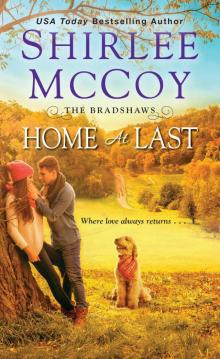 Home at Last
Home at Last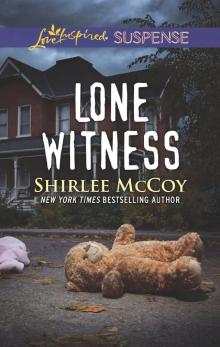 Lone Witness
Lone Witness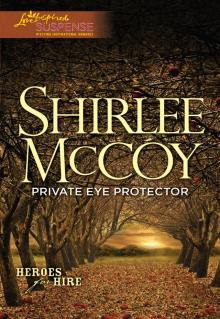 Private Eye Protector
Private Eye Protector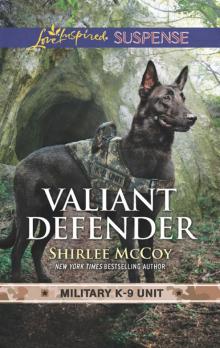 Valiant Defender
Valiant Defender Running Scared
Running Scared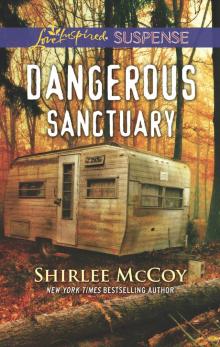 Dangerous Sanctuary
Dangerous Sanctuary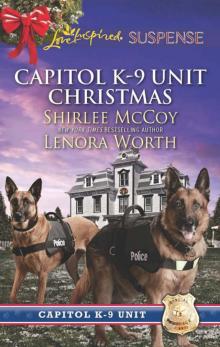 Capitol K-9 Unit Christmas: Protecting VirginiaGuarding Abigail
Capitol K-9 Unit Christmas: Protecting VirginiaGuarding Abigail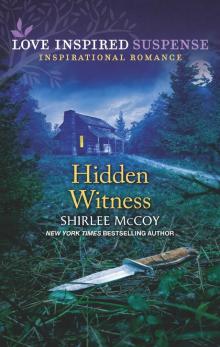 Hidden Witness
Hidden Witness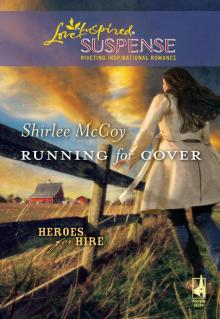 Running for Cover
Running for Cover Gone
Gone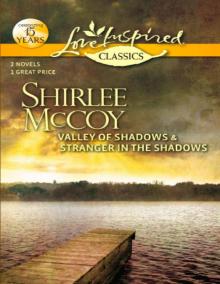 Valley of Shadows and Stranger in the Shadows: Valley of ShadowsStranger in the Shadows
Valley of Shadows and Stranger in the Shadows: Valley of ShadowsStranger in the Shadows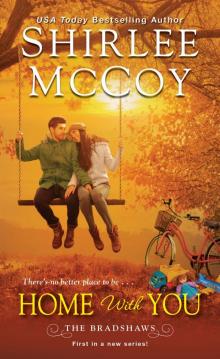 Home with You
Home with You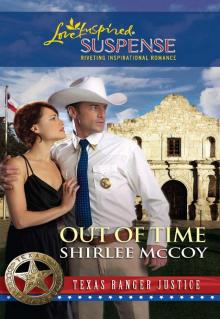 Out of Time
Out of Time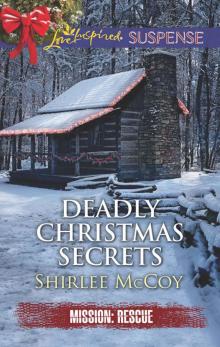 Deadly Christmas Secrets
Deadly Christmas Secrets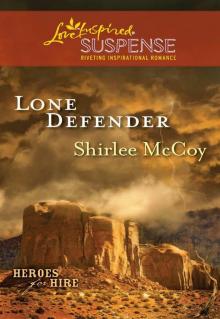 Lone Defender (Love Inspired Suspense)
Lone Defender (Love Inspired Suspense)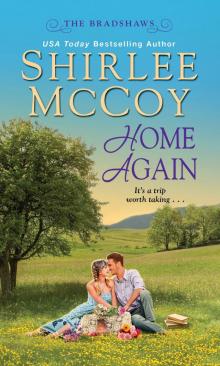 Home Again
Home Again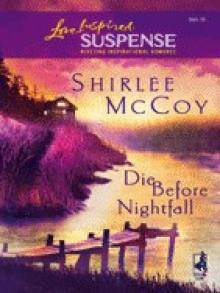 Die Before Nightfall
Die Before Nightfall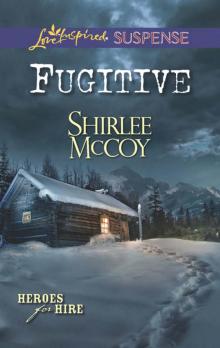 Fugitive
Fugitive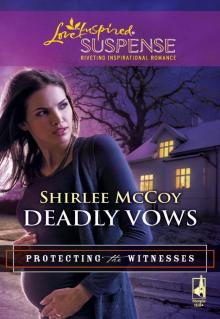 Deadly Vows
Deadly Vows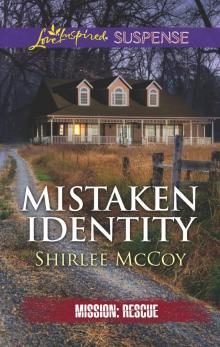 Mistaken Identity
Mistaken Identity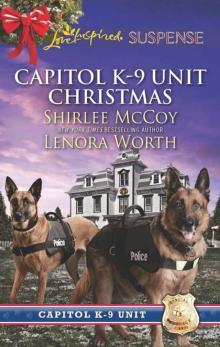 Capitol K-9 Unit Christmas
Capitol K-9 Unit Christmas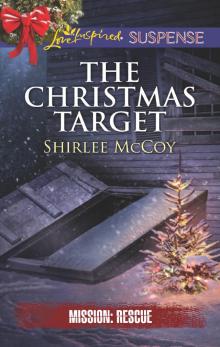 The Christmas Target
The Christmas Target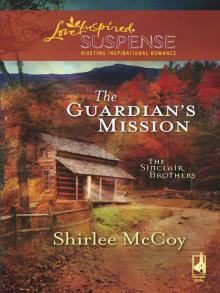 SB01 - The Guardian's Mission
SB01 - The Guardian's Mission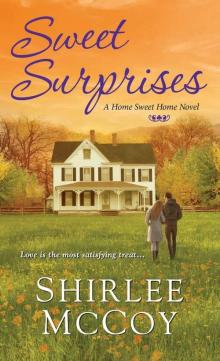 Sweet Surprises
Sweet Surprises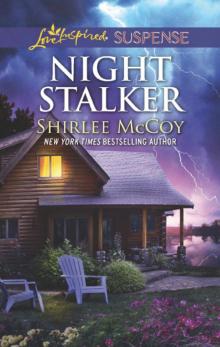 Night Stalker
Night Stalker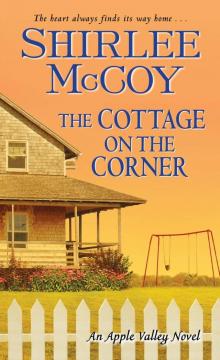 The Cottage on the Corner
The Cottage on the Corner Love Inspired Suspense January 2014
Love Inspired Suspense January 2014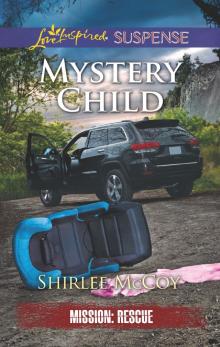 0373447477 (R)
0373447477 (R) Love Inspired Suspense March 2015 - Box Set 1 of 2: Protection DetailHidden AgendaBroken Silence
Love Inspired Suspense March 2015 - Box Set 1 of 2: Protection DetailHidden AgendaBroken Silence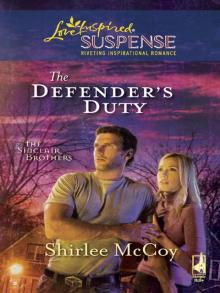 SB03 - The Defender's Duty
SB03 - The Defender's Duty Love Inspired Suspense June 2015 - Box Set 2 of 2: Exit StrategyPaybackCovert Justice
Love Inspired Suspense June 2015 - Box Set 2 of 2: Exit StrategyPaybackCovert Justice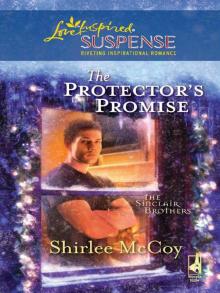 The Protector's Promise (The Sinclair Brothers)
The Protector's Promise (The Sinclair Brothers) Bodyguard
Bodyguard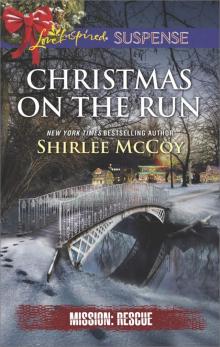 Christmas on the Run
Christmas on the Run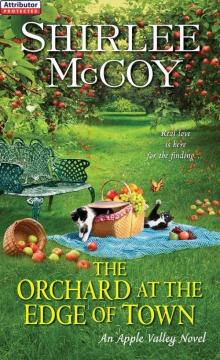 The Orchard at the Edge of Town
The Orchard at the Edge of Town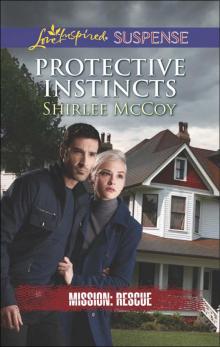 Protective Instincts
Protective Instincts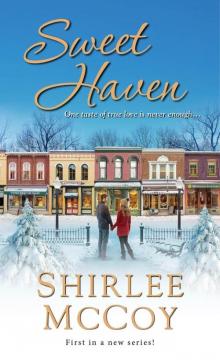 Sweet Haven
Sweet Haven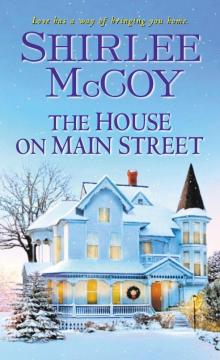 The House on Main Street
The House on Main Street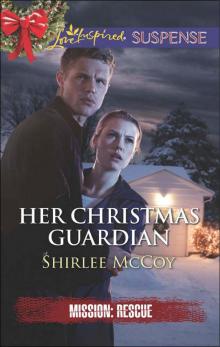 Her Christmas Guardian
Her Christmas Guardian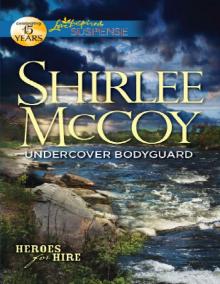 Undercover Bodyguard
Undercover Bodyguard